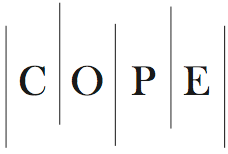About Polymers
Aims
Polymers (ISSN 2073-4360) is an international, open access journal of polymer science. It publishes research papers, communications and review articles. Polymers provides an interdisciplinary forum for publishing papers which advance the fields of (i) polymerization methods, (ii) theory, simulation, and modeling, (iii) understanding of new physical phenomena, (iv) advances in characterization techniques, and (v) harnessing of self-assembly and biological strategies for producing complex multifunctional structures. Scientists are encouraged to publish their experimental and theoretical results in as much detail as possible. There is no restriction on the maximum length of the papers. The full experimental and computational details must be provided so that the results can be reproduced.
Scope
- Polymer Chemistry: novel synthetic and polymerization methods; reactions and chemistry of polymers; polymerization mechanisms and kinetics; synthesis of functional polymers; catalytic applications in polymerization
- Polymer Analysis and Characterization: studies, methodologies, instrumentation, and applications involving the characterization and analysis of polymers, polymeric materials, polymer additives and polymerization mechanism; measurement of molecular weight, size, conformation, structure, properties and behavior of polymers; separation, spectroscopy, and scattering techniques; structure–property–processing relationships; degradation ageing and fire retardancy of polymer systems
- Polymer Physics and Theory: theoretical, computational, and experimental studies of the physico-chemical properties of polymeric systems: the development of multiscale modeling methodologies, constitutive equations, and new theories; the implementation of efficient algorithms and machine learning schemes for structure–property relationship quantification; and experimental studies for the preparation and characterization of new polymeric materials, including instrumentation and development of new measuring devices
- Polymer Processing and Engineering: shaping, synthesis, transformation, compounding, functionalization, and stabilization of polymeric materials, including extrusion, film blowing, wire-coating, injection molding, blow molding, thermoforming, calendaring, mixing, compression and transfer molding, rotational molding, plastic foam molding, reactive polymer processing, fiber spinning, additive manufacturing and 3D printing
- Polymer Applications: all kinds of applications (from sensors to actuators, from biomedical engineering to space engineering, and from the macro scale down to the nano scale) with polymeric materials, proof of concept, structural/system design, performance verification and characterization
- Biomacromolecules, Biobased and Biodegradable Polymers: polymers of biological origin produced by living organisms, including polysaccharides, proteins, peptides, polyesters, polyamides, etc.; polymers from renewable resources and biodegradable polymers
- Circular and Green Polymer Science: design and development of green polymer systems; mechanical and chemical recycling and energy recovery of polymer and biopolymer-based systems; polymer synthesis using renewable resources and employing green methods for polymer synthesis
- Polymer Composites and Nanocomposites: design of polymer composites and nanocomposites, fiber-reinforced polymers, biomedical composites, structural composites, multi-functional composites, biomimetic and eco composites, polymer foams, smart composites, modelling of polymer composites and nanocomposites, self-healing of polymer composites and nanocomposites, life cycle assessment of polymer composites and nanocomposites.
- Polymer Networks: synthesis, characterization, and applications of crosslinked polymers, including thermosetting polymers, elastomers, hydrogels, interpolymeric complexes, etc.
- Polymer Membranes and Films: structure, performance, processes, and applications of polymer membranes and films that cover membrane chemistry, physics, engineering, and biology, a broad variety of applications in ultrafiltration, gas separation, water treatment, fuel cell separators, energy storage and utilization, biotechnology, food packaging, and corrosion protection
- Polymer Fibers: fundamental and applied research in various branches of fiber technology, such as polymer chemistry and physics for fiber production, spinning/yarning technology, fiber-reinforced composites, fiber nanotechnology, natural fiber extraction, characterization, and application, and so on.
- Smart and Functional Polymers: synthesis and application of smart polymers, including stimuli-responsive polymers, shape memory polymers, self-healing polymers, polymer-based actuators/sensors, etc.; study of polymers with functional properties such as separation, electronic conductance, photo- and electro-luminescence, energy storage and conversion, data storage, etc.
See here for a full list of topics covered.
MDPI Publication Ethics Statement
 MDPI is a member of the Committee on Publication Ethics (COPE).
MDPI takes the responsibility to enforce a rigorous peer-review together with strict ethical policies and standards to ensure to add
high quality scientific works to the field of scholarly publication. Unfortunately, cases of plagiarism, data falsification, inappropriate
authorship credit, and the like, do arise. MDPI takes such publishing ethics issues very seriously and our editors are trained to proceed in
such cases with a zero tolerance policy. To verify the originality of content submitted to our journals, we use iThenticate to check submissions against previous publications.
MDPI is a member of the Committee on Publication Ethics (COPE).
MDPI takes the responsibility to enforce a rigorous peer-review together with strict ethical policies and standards to ensure to add
high quality scientific works to the field of scholarly publication. Unfortunately, cases of plagiarism, data falsification, inappropriate
authorship credit, and the like, do arise. MDPI takes such publishing ethics issues very seriously and our editors are trained to proceed in
such cases with a zero tolerance policy. To verify the originality of content submitted to our journals, we use iThenticate to check submissions against previous publications.
Book Reviews
Authors and publishers are encouraged to send review copies of their recent related books to the following address. Received books will be listed as Books Received within the journal's News & Announcements section.
MDPI
St. Alban-Anlage 66
CH-4052 Basel
Switzerland
Copyright / Open Access
Articles published in Polymers will be Open-Access articles distributed under the terms and conditions of the Creative Commons Attribution License (CC BY). The copyright is retained by the author(s). MDPI will insert the following note at the end of the published text:
Reprints may be ordered. Please contact for more information on how to order reprints. Announcements regarding academic activities such as conferences are published for free in the News & Announcements section of the journal. Advertisement can be either published or placed on the pertinent website. Contact e-mail address is . For further MDPI contacts, see here.Reprints
Announcement and Advertisement
Editorial Office
Contact us





